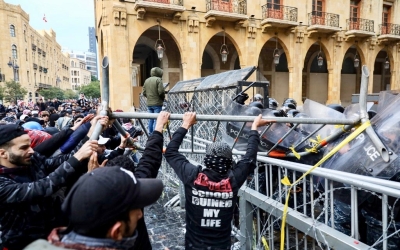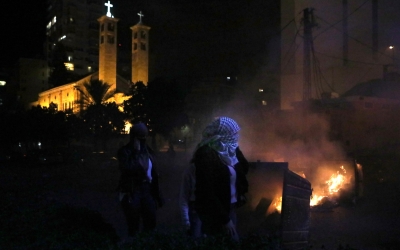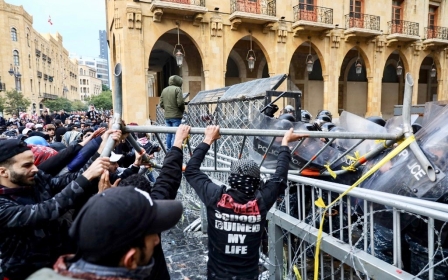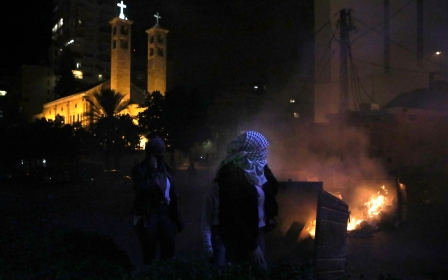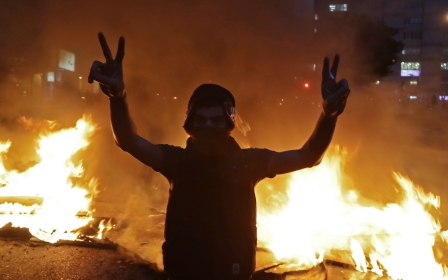Hundreds wounded in two days of clashes in Lebanon's capital
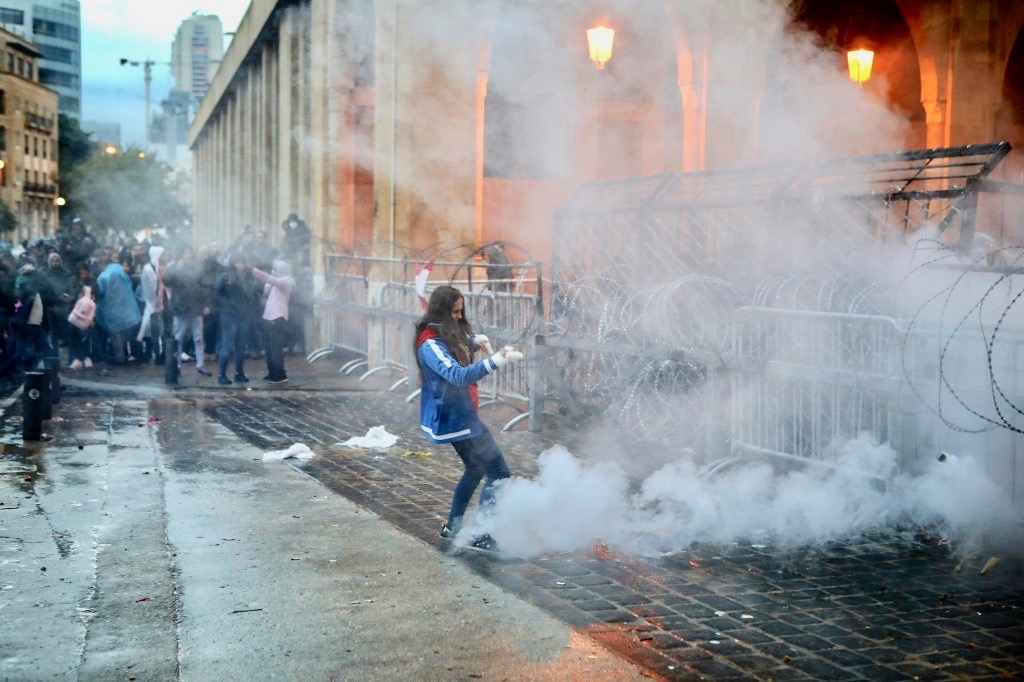
Medics said 70 people were injured in renewed clashes between protesters and police in Lebanon's capital on Sunday, taking the toll of wounded from two days of violence to almost 450.
Unprecedented protests have rocked the country since 17 October, with citizens from all religious backgrounds demanding the exit of a political class they view as inept, corrupt and responsible for an ever-deepening economic crisis.
Lebanese politicians have failed to agree on a new government or economic rescue plan since Saad al-Hariri quit as prime minister in October, Reuters said. As the country sinks deeper into economic crisis, anger has boiled over at rulers who have dominated since the 1975-1990 civil war.
On Sunday evening, hundreds of protesters gathered in the rain in central Beirut by a barricaded road that leads to parliament amid heavily deployed security forces.
For the second night in a row, dozens began lobbing stones in the direction of police behind a metal barricade, crying, "Revolution! Revolution!".
Anti-riot forces responded with water cannons, rubber bullets and tear gas, an AFP reporter said.
The Red Cross said that 70 people were wounded, including 30 taken to hospital as a result of the renewed clashes.
Earlier, a 34-year-old protester called Mazen said he and others were "fed up with politicians".
"We're not scared. This is all for our future and our children," said Bassam Taleb, a shoemaker, at the protest.
"The country is frozen. The state is not doing a thing; they're a bunch of thieves. And if you have money in the bank, you can't even get a hundred dollars out."
People have turned their ire on the banks - which have curbed access to savings - with some smashing the facade of the banking association on Saturday night.
The Lebanese pound has lost nearly half its value, dollar shortages have driven up prices and confidence in the banking system has collapsed.
On Saturday, at least 377 people were wounded - both protesters and members of the security forces - according to a toll compiled by AFP from figures provided by the Red Cross and Civil Defence.
Human Rights Watch condemned what it called "the brutal use of force unleashed by Lebanon's riot police against largely peaceful demonstrators".
"Riot police showed a blatant disregard for their human rights obligations, instead launching tear gas canisters at protesters' heads, firing rubber bullets in their eyes and attacking people at hospitals and a mosque," said its deputy Middle East director Michael Page.
The authorities must act quickly "to end this culture of impunity for police abuse", he said.
Security forces said they had opened a probe after a video shared online showed police beating up people believed to be protesters as they were brought to a Beirut police station.
"Another day without a government, another night of violence and clashes," UN envoy to Lebanon Jan Kubis said on Twitter.
Outgoing prime minister Saad Hariri, who stepped down on 29 October, urged political parties to "stop wasting time".
"Form a government and pave the way towards political and economic solutions," he said.
Protesters have demanded a new government be comprised solely of independent experts, and exclude all established political parties.
Prime Minister-designate Hassan Diab met with President Michel Aoun on Sunday evening but left without giving any statement as a deal on the new cabinet remained elusive.
Middle East Eye delivers independent and unrivalled coverage and analysis of the Middle East, North Africa and beyond. To learn more about republishing this content and the associated fees, please fill out this form. More about MEE can be found here.


